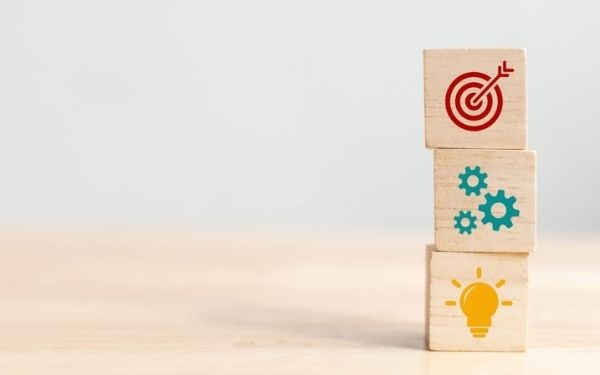Procrastination sneaks upon us all. What is the science of procrastination, and what are the actionable advice to overcome it? How do the students deal with the procrastination?
Let’s understand it with the mathematical formula. Piers Steel-an, an internationally recognized expert on human motivation, describes an equation useful in understanding procrastination.
He states the procedure. Motivation= Expectancy x Value/ Impulsiveness x Delay
Motivation is an enthusiasm to do work, which is essentially contrary to procrastination. Smashing down the equation expectancy refers to how much you expect to succeed at doing the tasks and thereby to get the anticipated reward. The more expects being successful, the less likely you are going to procrastinate.
Value refers to how much you enjoy doing the task and how much you will enjoy the reward.
The most value derived from a task was awarded, the more likely you will get straight to work.
Impulsiveness refers to your inclination to get distracted by other things—high impulsive traps you to scroll through your Instagram or Facebook instead of doing the work.
Delay refers to the time-lapse until receiving the predicted reward. The extended the delay, the more likely you are to postpone as you figure it is something you can later take care of.
We have to maximize the expectancy and value as they are directly proportional to the motivation. And have to minimize impulsiveness and delay because they are inversely proportional to motivation.
Steps To Overcome Procrastination
After having enough knowledge about the motivation and it’s direct and indirect relations. Let’s get into the five actionable steps to use the above equation to our advantage and withstand procrastination.
1.Break Down The Steps
Whether studying for an exam or completing a project, any task you need to do breaks it down into smaller steps. Doing so will increase expectancy in your Procrastination equation, as similar jobs seem much more comfortable to accomplish than more extensive projects.
While everyone has a different sweet niche, I find that being hyper-specific with timelines is very helpful. Let’s take some help from an example. Suppose you need to study for an exam next week, and you have several lectures and practice problems to go through. You will take a few minutes to think about which lectures you should complete each day and how many practice problems. And you put everything into a to-do list.
You can also see an example of a highly structured daily and weekly timeline created in Excel; this high level of structure works for you and your personality, but it does not mean that it works for everyone. But, you have to find out what works best for you.
2.Keep The Task Small
The hardest part of getting work done is just started. The Pomodoro technique is most interestingly one of the all-time favorite study hacks, which states that if you have to work ok in 25-minute blocks, each separated by a 5-minute break. During this, focus on just one small task. It was a revolutionary hack and worked very well for the students.
This technique increases the expectancy. If you sat down to study and told yourself that you need to study for 5 hours, you would easily get distracted.
But suppose you instead tell yourself that you only need to study 25 minutes on this one little task. In that case, it becomes less complicated, and it becomes much more comfortable not only to get started but also to stay focused for the 25 minutes Pomodoro.
3.Set The Bar Low
It is another trick to increase expectancy in your equation of motivation discussed above. You have to set the goal to something less than what you were capable of.
Let’s understand it with an example again; let’s say you have to do meditation practice regularly; when you set out to meditate 20 minutes every day, you only get around to doing it a few times per week.
You just felt like you never had the time to stay at the ground and do 20 minutes of meditation, so you did.
Instead of that, you lower your expectations by aiming to meditate for just 2 minutes every day. By reducing the bar, you find yourself contemplating most days, and even though you said the goal as only for a few minutes, you almost always exceeded it.
4.Hack Pleasure
You have to hack the pleasure from the ordeal of studying. Do you ever feel like studying is tedious? What if you don’t benefit the immediate consequences of the task?
Let’s say you do not know what you want, or maybe you have unclear priorities. These examples all point to lower your value in the equation of motivation; increases in value will help us overcome procrastination. So, the question arises, how do we raise the value?
One way is by giving yourself a bonus for completing a task. For example, you can get yourself with a healthy and tasty meal or hang out with your friends after and only after you finish your job.
Alternatively, you can improve the experience of your work itself. As you progress in your education, the work gets more focused on the material you enjoy. However, you may have to grind through subjects that we do not find stimulating in the beginning.
To improve the experience of studying, consider mixing up your study environment or listening to the excellent study music.
5.Use Parkinson’s Law
The idea that you can complete your task later can crash even the most productive individual. Here comes the Parkinson’s law, which states that work expands to fill the time. If you have only 30 minutes to work to do, but you spend two hours of work to do it, then you will end up paying the entire two hours.
Try to make the artificial deadlines; these artificial deadlines decrease your motivation equation’s delay and reduce the likelihood of procrastination.
This trick might not be too aggressive with your timelines, as it can lead to unnecessary stress. With time, you will get more accurate at gauging how long a task will take in how to use Parkinson’s law.
Conclusively, to overcome procrastination, you have to be deliberate with your study environment. Because everyone agreed that one of the biggest killers to your productivity is distractions, you can avoid these distractions through your will power. Hopefully, this article will help you to handle procrastination.















0 Comments
Trackbacks/Pingbacks